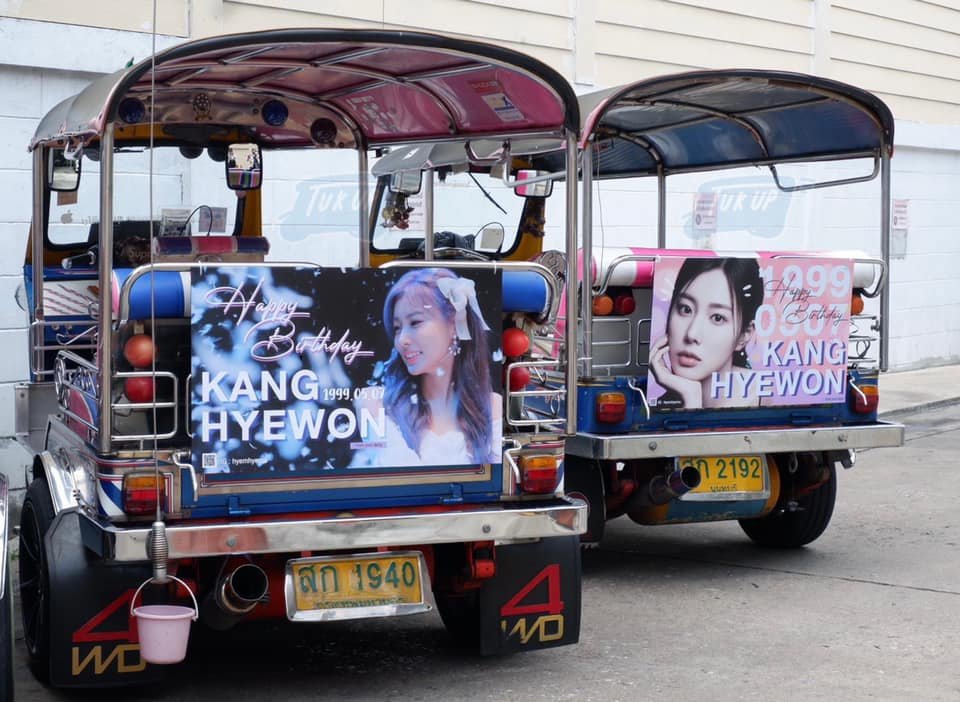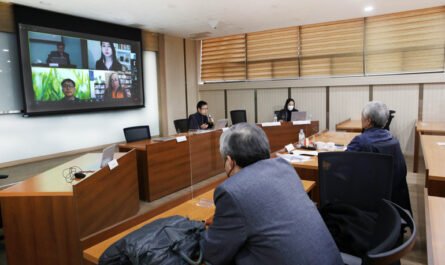It doesn’t take an economist to figure out why small businesses across the world are struggling to get by during the COVID-19 pandemic.
With strict safety measures and lockdowns put in place to prevent the spread of the virus, it’s the small, independently-run businesses that suffer the most. At the same time, big corporations sit in relative comfort as they put expensive contingency plans into action.
Friendly tuk-tuk drivers, as well as small food vendors serving up mouthwatering Thai street food – both iconic symbols of Thailand in their own right – have struggled to keep afloat during the pandemic.
But amid the financial strain of COVID-19 comes a diverse group of people, who we can rightfully call the unsung heroes of the pandemic: K-pop stans. We’ve seen them come out in droves during the pandemic, often using crowdfunding techniques to simultaneously offer assistance to those in need, as well as promote whatever idol (or group) they’re supporting.
For tuk-tuk drivers and small food vendors in COVID-struck Thailand, that equates to a valuable lifeline.
K-pop stans in Thailand used to compete for valuable ad space in the country’s public transport system, namely Bangkok’s SkyTrain and subway system. But that all changed when the public transport authority shut down to prevent protestors from traveling to demonstration spots, calling for the resignation of Thai Prime Minister Prayut Chan-ocha.
Seen as a sign of betrayal, after all the revenue the public transport system happily pocketed from these K-pop ads, the fans (protestors themselves) have diverted their K-pop activism to the smaller folks. How do you ask?
Easy – implement the same advertising tactic, but on tuk-tuks and street food stalls.
“The extra income may not be a lot for most people, but it is for us,” said 39-year-old tuk-tuk driver Samran Thammasat. Since he began putting up K-pop ads on his tuk-tuk these past few months, he’s been earning roughly US$19 (600 Baht) per month, just from the advertisements alone.
Though, as he says, it may not be much for most people, the ad money he gets is just enough to sustain his tuk-tuk. Before the pandemic, he would earn roughly US$47 (1,500 Baht) a day, back when foot traffic was regular, and tourism was still a thing.
K-pop stans usually put up their ads for a month at a time, guaranteeing some form of steady income for small businesses instead of making them live day-by-day.
Hundreds of struggling tuk-tuk drivers have benefited from this new income stream, and the number of K-pop-clad tuk-tuks is increasing.
“It’s a political expression that we don’t support capitalists. This marked a change from us competing to book SkyTrain and subway billboards, but now it’s tuk-tuks,” said 27-year-old K-pop stan Pichaya Prachathomrong.
Having raised US$565 (18,000 Baht) herself, with the help of Thai fans of popular boyband Super Junior, 13 tuk-tuks were recruited to fly banners across an empty Bangkok. This was done via a new booking service called ‘Tuk-Up,’ available on the LINE messaging app.
Designed by 21-year-old university student Thitipong Lohawech, the ‘Tuk-Up’ service was initially meant to help the handful of drivers who rented tuk-tuks from his family’s garage. Since its inception, however, the service has expanded to assist more than 300 drivers around Bangkok.
“The fans are distributing income to the grassroots, which helps drive social change and support the economy,” Thitipong said.
Though the Thai government has approved a US$30 billion (967 billion Baht) relief package, tuk-tuk drivers like Pairot Suktham (54) say it’s useless since most handouts can only be accessed via a mobile wallet app. A lot of tuk-tuk drivers don’t own smartphones in the first place.











